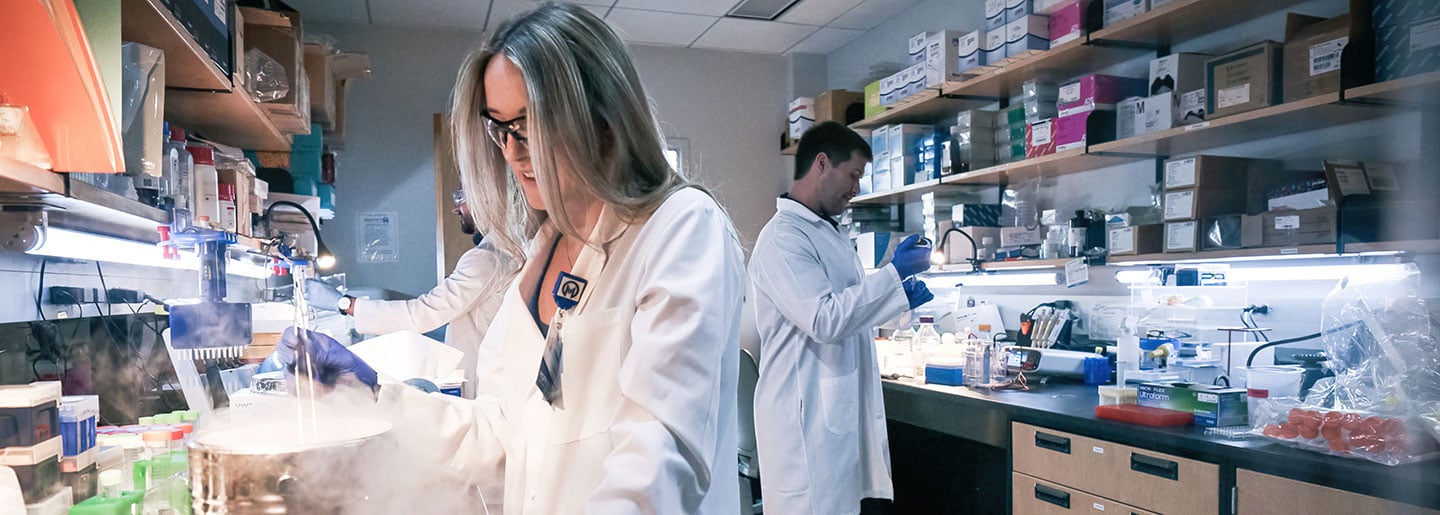Drug Discovery Department

The Department of Drug Discovery is interdisciplinary and composed of faculty members with expertise in molecular and cellular biology, structural biology, chemistry and pharmacology. The department focuses on three major goals:
- To identify and validate signal transduction pathways and molecular targets that are disregulated in cancer cells.
- To design and synthesize chemical probes to modulate such disregulated pathways and to develop these probes into novel anticancer drugs.
- To translate, in collaboration with physician-scientists, laboratory findings to hypothesis-driven clinical trials.
The faculty members identify and validate aberrant pathways in cancer cells using several approaches, including traditional cellular and molecular biology as well as systemic biology, proteomics and genomics. They use genetically engineered cultured cells and in vivo animal models of cancer for proof-of-concept studies. They accomplish the design and synthesis of chemical probes through traditional synthetic organic chemistry and medicinal chemistry approaches along with structure-based drug design and experimental and in-silico high-throughput screening. Examples of faculty projects include those involving signal transduction pathways mediated by small GTPases such as Ras, Rho, Ral and Rheb; kinases such as Aurora, RhoKinase, CDK2, Ack1 and Akt; protein-protein interactions such as MDM2/p53, MDMX/p53, Rb/Raf, IGF-1R/FAK and others such as STAT3, proteasome, Shp2, FTase and GGTase I. Among the projects that have translated laboratory findings to the clinic are those involving FTase, GGTase I and Akt.
